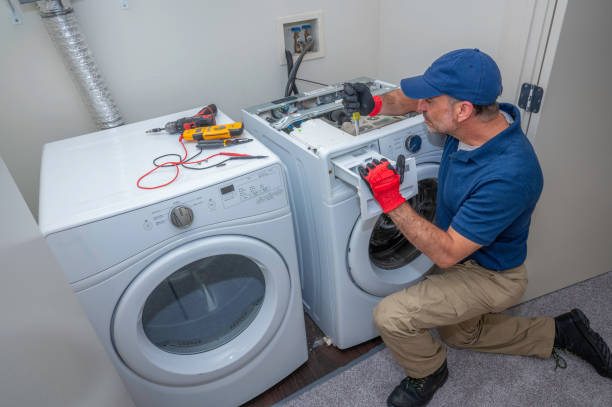
Troubleshooting Facilitated: A Complete Overview to Dish Washer Problem-Solving
Say goodbye to dish washer issues with our extensive overview that takes the inconvenience out of troubleshooting and fixing. Whether you're taking care of a small glitch or a much more intricate problem, we have actually got you covered with easy and easy-to-follow actions to get your dishwashing machine running efficiently again.
Repairing the Concern
Loud Sounds
When your dishwasher is generating odd sounds while running, it may indicate various issues. Try to find loosened or broken parts like spray arms, racks, or bearings. Likewise, check out the inlet valve and motor for any type of indications of damage or malfunction.
Dishwashers prone to leaking can result in water damage in your kitchen area, wrecking your floorings and closets. To prevent this, regularly inspect the door gasket for any tears or wear, as this is normally the perpetrator behind leakages. Furthermore, make certain your dishwashing machine is set up on a degree surface area to stop water from gathering inside the device.
Subpar Cleansing Results? Try These Fixes!
If your dish washer is leaving meals filthy or with food bits continuing to be, maybe because of a couple of problems. First, evaluate the spray arms for clogs and make sure the water inlet valve works effectively. Furthermore, use a dishwasher cleaner to remove any gathered grease or particles inside the device.
A dishwasher that does not drain pipes correctly can produce a swimming pool of water near the bottom, which can trigger unpleasant scents and mold and mildew development. To resolve the problem, check the drainpipe hose for any type of blockages or twists and make sure the drain pump is without particles. Furthermore, examine the dish washer's filter for any obstructions.
Detailed Troubleshooting
Action 1: Look For Power Issues
Prior to diving right into more complex fixing steps, make sure that your dish washer is obtaining power. Check the breaker or circuit box to validate that the dishwasher's electrical supply is intact. If required, reset the breaker or replace the fuse.
Examine the Door Seal: A damaged door seal might allow water retreat during the clean cycle. Look meticulously at the door gasket for damage or signs of wear, like tears or deformities. Replace it if needed to avoid more leaks.
Step 3: Clean the Filter
Gradually, food fragments and debris can collect in the dish washer's filter, impeding water flow and influencing cleansing efficiency. Get rid of the filter according to the supplier's instructions and rinse it thoroughly under running water to remove any trapped residue.
Step 4: Inspect the Spray Arms
Blocked or damaged spray arms can prevent water from getting to all areas of the dishwasher, resulting in inadequate cleansing results. Remove the spray arms and evaluate them for any kind of obstructions, such as food particles or mineral deposits. Tidy the spray arms extensively and re-install them in the dishwashing machine.
Step 5: Examine the Drainpipe Pump
The drain pump is responsible for removing wastewater from the dishwashing machine after each cycle. To evaluate the pump, remove any standing water from the dishwasher's interior and launch a drain cycle. Pay attention for the noise of the pump running, and look for any indicators of water being removed via the drain hose pipe.
Action 6: Examine Water Inlet Shutoff Performance
The water inlet shutoff regulates the circulation of water into the dish washer during the wash cycle. If the shutoff is malfunctioning or clogged, it can prevent the dish washer from filling appropriately. Make use of a multimeter to check the inlet valve for connection, and replace it if necessary to make sure correct water circulation.
In recap, this overview offers you with the understanding and abilities needed to detect and deal with common dishwasher issues with ease. Always keep safety in mind and seek the assistance of an expert if power issues you come across issues that are past your capacities.